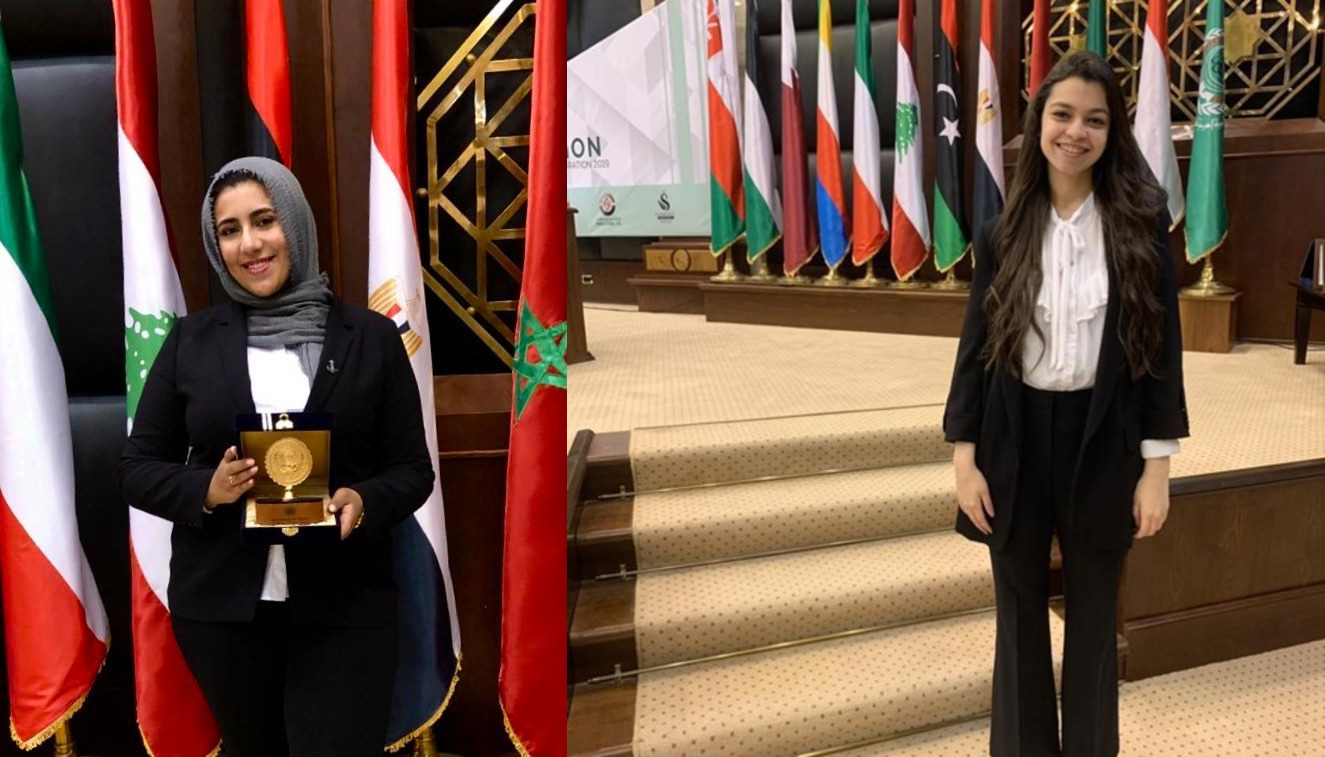Promoting gender inclusivity through translation in the Arab States
International Translation Day 2020Date:

A group of 8 Translation students from the College of Languages and Communications in Alexandria, Egypt, joined the Student Mentorship Programme for Translation, a new initiative by UN Women Regional Office for the Arab States aimed at sensitizing the new generation of translators by building their capacity and skills to use gender-inclusive Arabic language in translation and interpretation.
Starting in 2020, the Translation Mentorship Programme introduced the participants to the UN Gender Inclusive Language Guidelines, a set of strategies developed to help United Nations staff use gender-inclusive language in any type of communication, whether oral or written, formal or informal, or addressed to an internal or external audience. The Guidelines have been produced in the six official languages of the United Nations, including in Arabic.
In addition, participants received guidance for the use of UN Women’s Gender Terminology, an online searchable lexicon including over 650 gender-inclusive words and expressions in Arabic, English, French, Russian and Spanish.
“Given the key role of language in shaping cultural and social attitudes, adopting gender-inclusive language is a powerful means to promote gender equality and address negative gender stereotypes,” said Dr. Moez Doraid, Regional Director a.i. for UN Women Regional Office for the Arab States.
“Thanks to this programme, gender-inclusive language is now embedded in my vocabulary. Now, I have a better understanding of the importance of the language we use on our daily lives and in our translation work” says Nehad Abdelaziz, 23, a participant of the Translation Student Mentorship Programme.
As part of the training, the students have supported the translation of content developed for UN Women’s website and social media. Students have also contributed to enhancing and expanding the gender terms database and developing additional guidelines for the use of gender-inclusive Arabic language.
“Joining UN Women’s Mentorship Program gave me the opportunity to improve my skills and become more aware and sensitive while choosing my words when translating documents. I also realized the importance of language in promoting gender equality and women’s empowerment,” said Mariam Mohamed, 22, other member of the translation Student Mentorship program.
UN Women is now keen to explore a new avenue of engagement with other regional education institutions to engage students in the Arab States region in efforts to promote gender equality and women’s empowerment through gender-inclusive language.